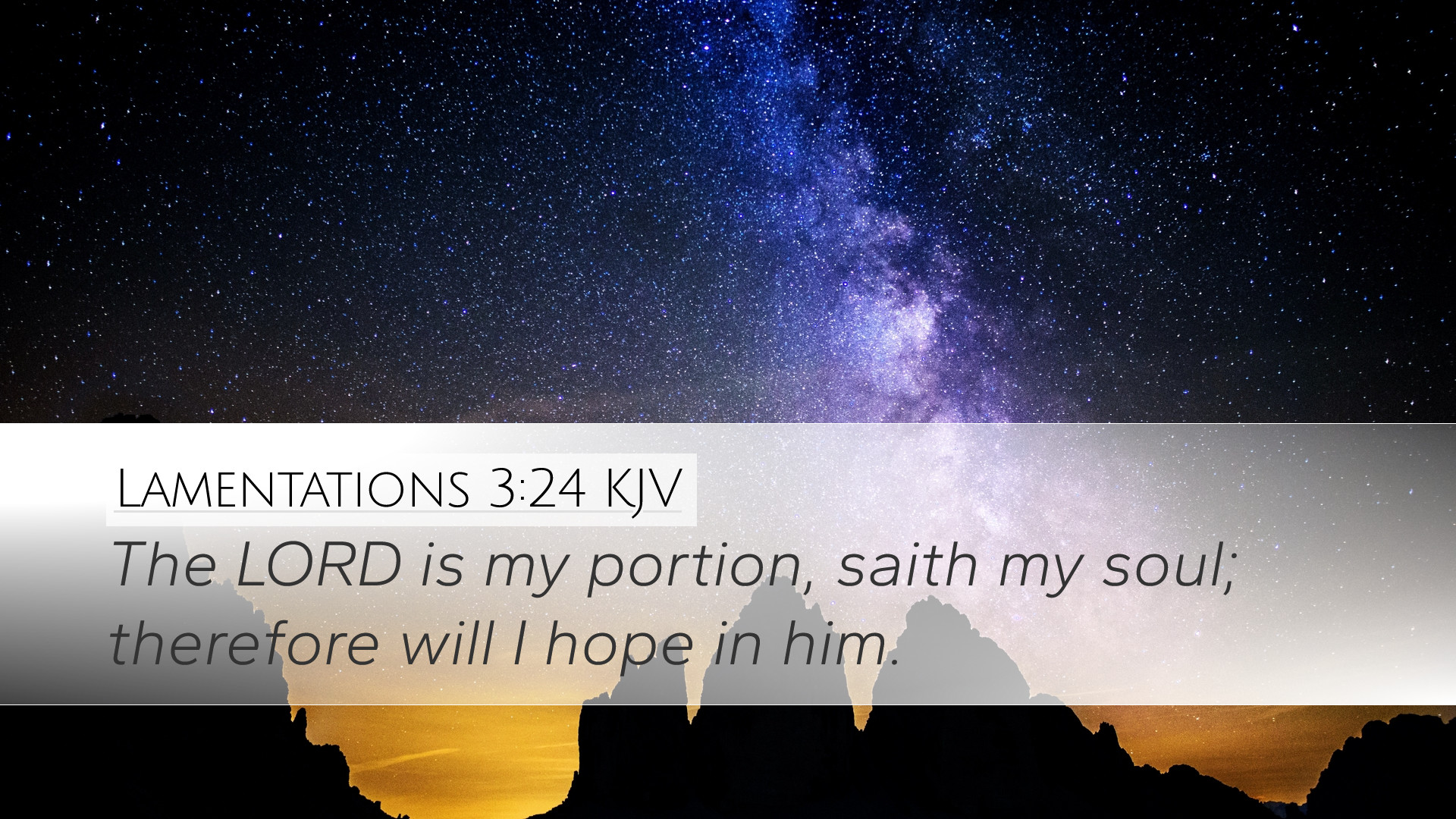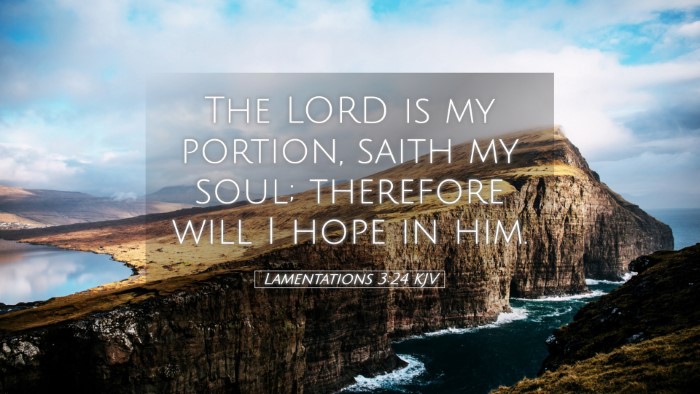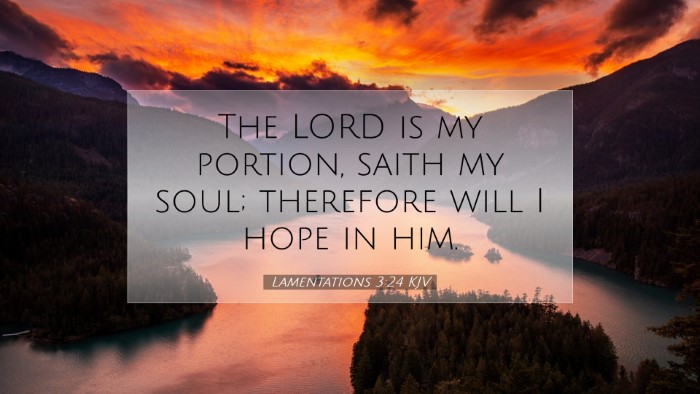Lamentations 3:24 - Commentary Summary
Verse: "The Lord is my portion, saith my soul; therefore will I hope in him."
Lamentations, traditionally attributed to the prophet Jeremiah, is a poignant expression of grief and sorrow after the destruction of Jerusalem. Within its mournful context, Lamentations 3:24 emerges as a beacon of hope, reflecting a profound theological truth about God's enduring faithfulness.
Insights from Public Domain Commentaries
Matthew Henry's Commentary
Matthew Henry emphasizes the personal nature of hope and faith in God expressed in this verse. He notes that the phrase "The Lord is my portion" signifies a deeply personal relationship between the believer and God. This sentiment echoes Psalm 73:26, where the psalmist declares that God is the strength of his heart. Here, Henry indicates that when God is one’s portion, it implies that there is no lack in spiritual wealth. The believer finds sustenance and satisfaction not in material possessions but in the divine presence of God.
Henry also highlights the transition from despair to hope inherent in this verse. Amidst overwhelming misery, the acknowledgment of God as a personal portion restores hope. The soul's declaration of hope signifies a choice to trust in God's enduring love and care, reaffirming God's role as the source of comfort and stability.
Albert Barnes' Notes on the Bible
Albert Barnes provides a detailed exposition of the significance of "portion" in this verse. He elucidates that in ancient times, a 'portion' referred to one's share of inheritance, particularly in the promised land. For Israelites, this would symbolize God's blessing and provision. Barnes notes that to claim God as one's portion is to recognize the richness of spiritual blessings available to believers. It represents a profound trust in God’s providence and an assurance of His sufficiency.
Barnes also points out the contrasting despair of the previous verses with this declaration of hope. He articulates the importance of remembering God’s mercies when circumstances seem bleak. This verse encapsulates a principle that resonates deeply with believers: that hope is found in reliance on God alone, irrespective of external circumstances.
Adam Clarke's Commentary
Adam Clarke offers an extensive reflection on the emotional state conveyed in Lamentations 3. He discusses the tribulations faced by the people and how, in the midst of suffering, the individual can assert the hope found in God. Clarke comments on the universality of people experiencing despair but emphasizes that each soul can find solace in the recognition of God as the ultimate portion.
Clarke interprets this notion of a "portion" as a divine inheritance that cannot be taken away. His insight highlights that this hope is not circumstantial but rather rooted in an inherent truth of who God is. Therefore, declaring "The Lord is my portion" becomes an act of faith – a conscious acknowledgment that transcends mere feelings, reinforcing the idea that assurance comes from understanding one’s relationship with God.
Theological Reflection
The emphasis across these commentaries brings forth several theological implications of Lamentations 3:24:
- Personal Relationship with God: The text paints a picture of intimacy with God. The profound statement—"my portion"—infers ownership and personal devotion.
- Hope in Despair: The transition from sorrow to hope illustrates a core theme of redemption. It indicates that hope is possible, even amidst the darkest valleys.
- Divine Provision: Understanding God as "my portion" reminds believers that true provision comes from Him, rather than from worldly possessions or successes.
- Affirmation of Faith: The verse acts as an affirmation of faith. It encourages a proactive stance of trust in God's nature and promises.
Conclusion
Lamentations 3:24 serves as a powerful reminder of the hope that is rooted in one's relationship with God. Drawing insights from Matthew Henry, Albert Barnes, and Adam Clarke, we see a collective acknowledgment that despite the overwhelming nature of trials and sorrow, believers can anchor their hope firmly in God. This becomes not just a theological assertion but a personal declaration that sustains one's spirit through all of life's challenges.
As pastors, students, and scholars engage with this verse, it is essential to reflect on the implications of declaring God as our portion. It invites us to cultivate a deeper appreciation of God's unwavering faithfulness, finding solace in the hope that transcends our circumstances.


